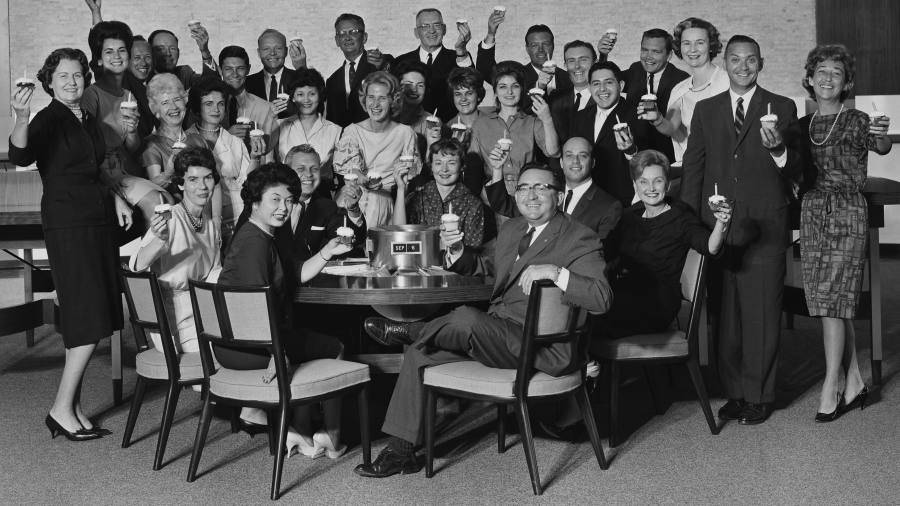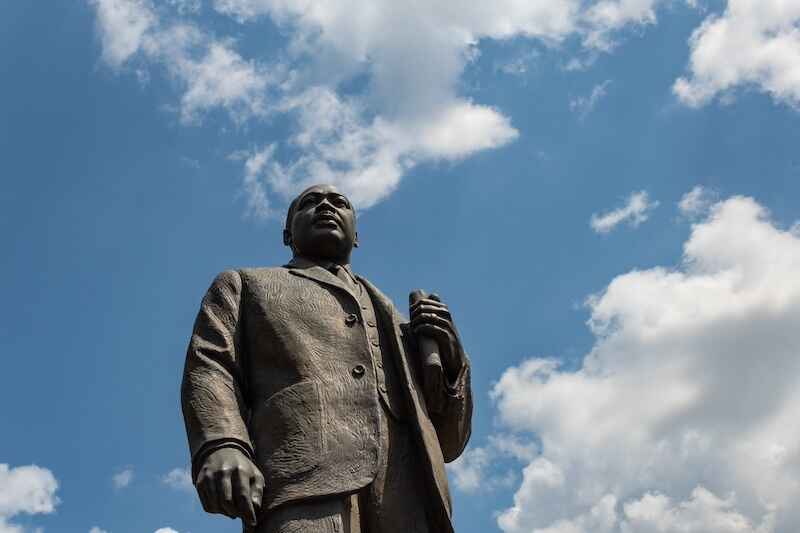When a man is tired of biscuits, as Samuel Johnson almost said, he is tired of life. And during this gloomiest of months, many of us have learned that the way to stoke our appetite for one is to secure and consume a steady supply of the other — especially at work. If biscuits can’t be found, cake will do.
But someone is out to spoil our fun. Susan Jebb, professor of diet and population health at Oxford and chair of the Food Standards Agency, suggested that we are harming our colleagues’ health by bringing sweet treats into the office. Comparing the effects to passive smoking, Jebb called for a “supportive environment” for healthy habits, explaining in a Times interview: “If nobody brought cakes into the office, I would not eat cakes in the day, but because people do bring cakes in, I eat them.”
This morale-killing message, delivered at a time when many are already confronted with the failure of their New Year’s resolutions, was not so much dry January as just-plain-miserable-and-can’t-take-any-more January. “Why does someone not simply eat Professor Jebb?” was one irate reaction on Twitter.
Boris Johnson gave “cakeism” a bad name, but some of us have stout hearts and iron will and have carried on regardless. My own protest involved determinedly consuming far more homemade Battenberg cake than was good for me. One of our noted national characteristics is stubbornness when told what to do — a spine of bolshie steel running through the sugary dough. Even with 17 per cent food inflation and two-thirds of Britons battling their weight, we can expect the Office for National Statistics to record a spike in biscuit sales as Jebb’s intervention backfires.
Rebellious tendencies aside, let’s tackle the bogus analogy with passive smoking. Yes, I may turn up to work with shortbread for colleagues from some jaunt, but this custom of post-holiday gifting falls short of actually forcing the sweet, buttery pieces down their gullets. These are adults exercising free will. And if I do sneak back and purloin much of it for myself (be lenient, it goes so well with a cup of tea), I’m surely saving them from becoming victims of the obesity crisis. Will the effect on my own body spread to others? Some sort of snack miasma, presumably, or a transfer of insulin-raising ingredients by osmosis from desk to desk.
Enlightened management recognises the place of biscuits and cake in our working culture — and as a boost to productivity. It’s a simple question of inputs and outputs, if you like. And we do. The Financial Times’ beneficent management has supplied staff with slices of cake weekly since the financial crash of 2008, when the news engine was at full throttle round the clock and needed fuel. The much-loved perk even has its own Twitter account.
Jaffa cakes are in regular use as a newsroom bribe. Promising yourself a biscuit after completing a task or project is a useful motivational tool. And a treat can even be a conduit for bonding with a withdrawn or exhausted colleague, a token of appreciation or a lure to a dull meeting. One columnist admits he only drops by to pitch ideas in person because we have a well stocked supply of goodies. I don’t fancy our chances if we invite him for celery and a hair shirt to wear while eating it.
Sadly, the argument I hoped to make, that low temperatures and prohibitively high heating costs might justify gorging on extra cake during the cold snap, is a bit half-baked. True, the Victorians consumed vastly more calories than we do — up to 5,000 per day — but this was largely healthy fare with very little sugar in the diet (combined with sky-high activity levels).
No matter. This is one more area in which we have made progress as a society — from mouldy bread and lard gnawed at dawn before the factory whistle blew to a delicious tray of brownies at the desk mid-afternoon.
For the joyless health tsars — a wintry smile. For the rest — let us eat cake.
miranda.green@ft.com
Credit: Source link













